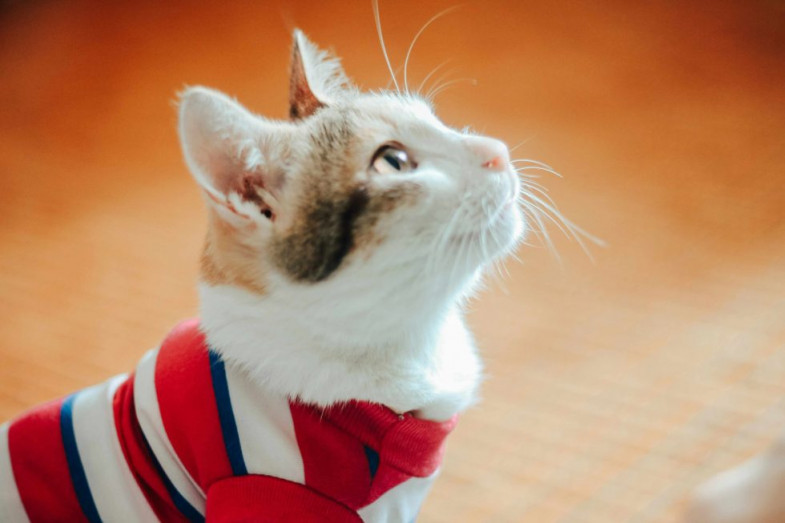Turner Veterinary Clinic News
The Benefits of Adopting a Senior Pet

One of the most rewarding things about being a pet owner is knowing that you've given an animal a loving home for the rest of their days. And what could be more rewarding than giving a senior pet a "new leash on life"? Senior pets are often passed over in favor of puppies and kittens, but they have so much to offer! Here are five reasons to consider adopting a senior pet today:
1. Senior pets are often already housebroken
When you adopt a senior pet, you're getting an animal that is already accustomed to living in a home environment. This means they're likely already housetrained and have experience interacting with people and other animals. This can be a big relief if you're worried about dealing with accidents or bad habits, and it's one less thing you'll have to worry about as you settle your new pet into their new home.
Of course, depending on the pet, if they've not had training, you'll still need to be prepared to do some work with them on things like learning to walk on a leash or getting used to a new routine. But overall, senior pets can be wonderful to transition into your home.
2. Senior pets are often calmer and less destructive
Puppies and kittens are notoriously active, which can lead to some destruction around the house as they explore their surroundings. Senior pets are often much calmer, and this can mean fewer destroyed shoes and shredded couch cushions. If you're looking for a low-key animal companion, a senior pet may be the perfect fit for you.
3. Senior pets are more likely to be spayed or neutered
Since senior pets have likely already been spayed or neutered, this is one less thing you'll need to worry about. This also means that they're less likely to mark their territory or try to escape in search of a mate, which can be a common issue with younger animals.
Being spayed or neutered also helps reduce the risk of certain cancers.
4. Senior pets are often observed in their foster homes or shelters, so you have insights into their behaviors and mannerisms
When you adopt a senior pet, chances are the staff at the shelter or rescue have had plenty of time to get to know their personality and quirks. This means they can give you a pretty good idea of what to expect in terms of energy level, temperament, and behavior. This can be helpful in deciding whether or not a particular pet is a good fit for your home and lifestyle.
They also have the opportunity to observe the pet with other pets and people, and this can give you some valuable insights into how your new pet will do in those situations. For example, if you have other pets at home, the shelter staff can tell you if the senior pet you're interested in does well with other animals. They can let you know how the pet relates to people, too, which can be helpful in understanding how the pet may react within your family dynamic.
5. Adopting a senior pet means you're giving them a second chance at a happy life
Senior pets often have a harder time getting adopted than younger animals, and as a result, they can end up spending their later years in shelters or rescue organizations, often due to no fault of their own. When you adopt a senior pet, you're not only giving them a loving home, but you're also giving them a second chance at happiness.
When you adopt a senior pet, you're giving them a second chance at a happy life - which is something they'll be forever grateful for.
Bonus tip!
6. Senior pets often have a lower adoption fee
One of the great things about adopting a senior pet is that they may have a lower adoption fee than younger animals. This can be a big benefit if you're on a budget or are looking to adopt multiple pets. Lower adoption fees also mean that more people are able to adopt, which is great for senior pets in need of homes.
So, if you're looking to add a new companion to your family, consider adopting a senior pet. They make great companions and come with a host of benefits.
If you do adopt a senior pet, we can't wait to meet them! Make an appointment today so we can give them a check-up and help them get settled into their new home and continue on a journey of wellness.
Categories
Recent Posts

February is often associated with love, thanks to Valentine’s Day, and that makes it a perfect time to show extra care to the pets who mean so much to us. While treats and cuddles are always appreciated, one of the most meaningful ways to support your pet is by focusing on their health from the inside out. Dental health and heart health may seem like separate topics, but they are closely connected and both play a major role in your pet’s overall wellness.

When was the last time your pet saw the veterinarian for a checkup, not because they were sick, but just to stay healthy? Preventive care is one of the most important ways to give your pet a longer, happier life. It’s not about doing one big thing. It’s about the small, consistent steps that help avoid bigger health problems later on.

The holidays are full of sparkle, laughter, travel, and to-do lists a mile long. As joyful as this season can be, it often means busier schedules and less time for everyday routines. In the middle of the holiday rush, it's easy to overlook one very important family member: your pet.

If you're lucky enough to have a senior pet, you know just how special that bond becomes over time. From cozy afternoons on the couch to the look in their eyes that says, "I've known you forever," there’s a deep and quiet understanding between you. As pets get older, though, their needs change. Aging isn’t a disease, but it does require us to adapt how we care for our beloved companions.
The good news? With the right care and attention, senior pets can enjoy happy, healthy golden years. Here are seven simple but meaningful health tips to help your older dog or cat feel their best.

Has your dog seemed a little more reserved lately, or is your cat less interested in playing with their favorite toys? It can be easy to attribute these changes to aging or mood, but pets are experts at hiding discomfort. The good news is that there are plenty of subtle signals that can provide clues that your pet may be experiencing pain, and many treatment options to help alleviate this discomfort.